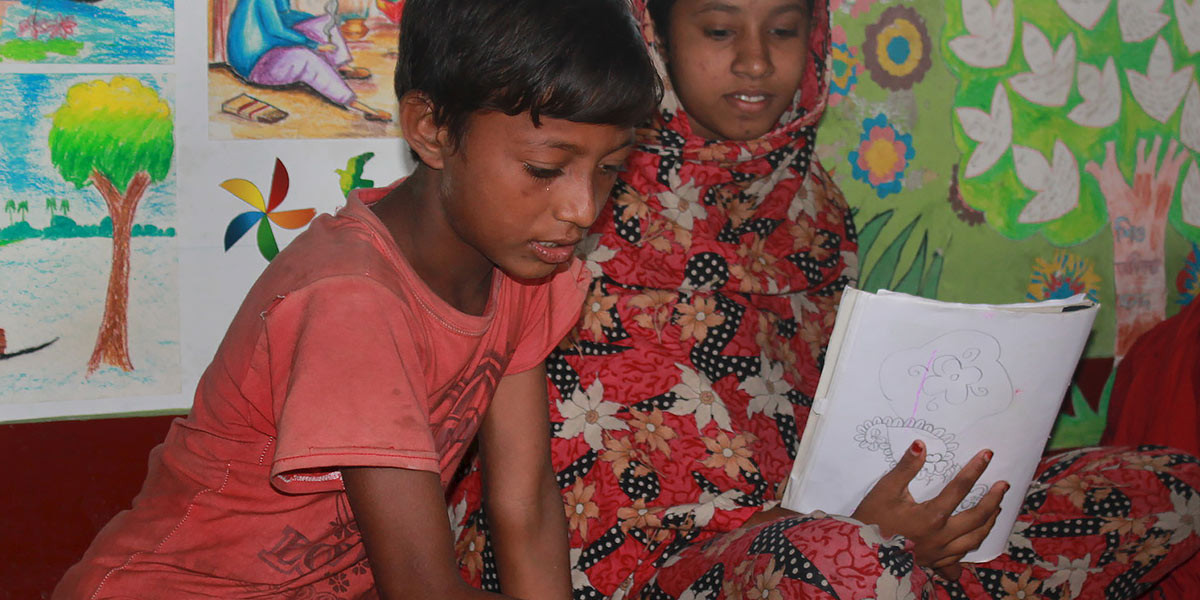Shohel started working when he was nine years old. He didn’t have much choice – his dad walked out on the family, and he needed money to buy food.
Shohel made 12p a day carrying fish in and out of a market in Bangladesh. Like more than 200 million children around the globe, he sacrificed his freedom, education and childhood to support his family.
When Shohel was 11, he moved in with his grandmother because her house is bigger, and because she can afford to feed him an evening meal.
Recently, life changed for Shohel.
Save the Children gave his mother a cash grant so she could open her own sari business. There is growing recognition that children and their families should be able to improve their own lives, and cash gives them the dignity of choice. Opening a sari shop was something Shohel’s mother had dreamed of doing for a long time. Save The Children gave her business training, and help to buy material for her business.
Already we’re able to eat a meal together in the evenings instead of just having lunch, and we can now afford to eat fish and potato! I’m so much happier now and I don’t have to work as much in the fish factory.
Save The Children has opened a learning and recreation centre in Khulna, in the south west of Bangladesh. Located on a narrow stairway in the middle of the slums, it has been decorated with the drawings and paintings of the children who use it. It’s a safe place for Shohel and the other children in his community to learn and play. For many of them, the centre is the only place they can draw, read and write.
It’s filled with other children who work and understand what it’s like to be a child who needs to work. I can speak openly about how I feel about home, work or school, but we mostly just have fun playing games and drawing. We also learn songs that teach us how we should expect to be treated at work, and about our rights, even if we’re poor and have to work.


